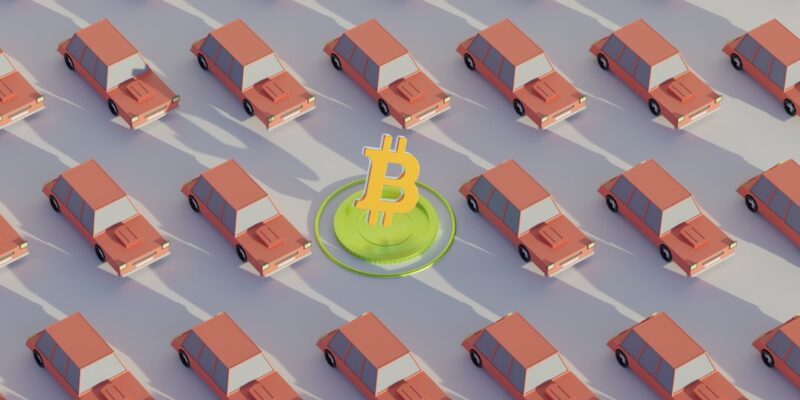
The Economic Impact of the Internet: How the Digital Age is Revolutionizing Business and Society
The digital age has revolutionized the way we live, work, and interact with one another. With the advent of the internet, information is readily available at our fingertips, communication has become instantaneous, and businesses have been transformed. Understanding the economic implications of the internet is crucial in order to navigate this new landscape and harness its potential for growth and development.
Key Takeaways
- The digital age has revolutionized the way we live and work, with the internet playing a central role in this transformation.
- The internet has had a profound impact on business, from the early days of e-commerce to the rise of the gig economy and sharing economy.
- Online shopping has become a major force in the economy, with e-commerce sales continuing to grow year after year.
- The gig economy has created new opportunities for workers, but also raises questions about job security and benefits.
- The internet has the potential to bridge the digital divide and promote economic growth, but access to the internet remains a challenge for many communities.
The Internet and Its Impact on Business: A Historical Perspective
The internet has had a profound impact on businesses across various industries. It has transformed the way companies operate, communicate, and reach their customers. In the early days of the internet, companies like Amazon and eBay emerged as pioneers in e-commerce, revolutionizing the way people shop and paving the way for a new era of online retail.
As technology advanced, companies began to realize the importance of having an online presence. Traditional brick-and-mortar stores started to establish their own websites and online stores to cater to the growing number of consumers who preferred shopping online. This shift in consumer behavior forced businesses to adapt or risk being left behind.
The Internet and Its Influence on Consumer Behavior
The internet has fundamentally changed the way consumers shop and make purchasing decisions. With just a few clicks, consumers can compare prices, read product reviews, and make informed choices without ever leaving their homes. Online reviews and social media have become powerful tools in shaping consumer behavior, as people rely on the opinions and experiences of others before making a purchase.
Companies have had to adjust their marketing strategies to meet the demands of this new consumer landscape. Online advertising, influencer marketing, and social media campaigns have become essential in reaching and engaging with customers. Businesses that fail to adapt to these changes risk losing out to competitors who understand the importance of digital marketing.
E-Commerce: The Rise of Online Shopping and Its Economic Impact
| Metrics | Data |
|---|---|
| Number of online shoppers worldwide | 2.14 billion |
| Global e-commerce sales in 2020 | 4.28 trillion |
| Percentage of retail sales made online in the US | 14.1% |
| Projected global e-commerce sales in 2023 | 6.54 trillion |
| Percentage of online shoppers who abandon their cart | 69.57% |
| Number of online marketplaces worldwide | 100+ |
| Percentage of online shoppers who use mobile devices | 73% |
| Number of e-commerce businesses in the US | 1.3 million |
| Percentage of online shoppers who read product reviews before making a purchase | 91% |
| Projected number of online shoppers worldwide in 2023 | 2.72 billion |
E-commerce has experienced exponential growth over the past decade, with more and more people opting to shop online. This shift in consumer behavior has had a significant impact on traditional brick-and-mortar stores, many of which have struggled to compete with the convenience and accessibility of online shopping.
The economic implications of this shift are far-reaching. Traditional retailers have had to downsize or close their doors altogether, leading to job losses and economic decline in some areas. On the other hand, e-commerce has created new opportunities for entrepreneurs and small businesses, allowing them to reach a global audience without the need for a physical storefront.
The Gig Economy: How the Internet is Changing the Nature of Work
The gig economy, characterized by short-term contracts and freelance work, has been enabled by the internet. Platforms like Uber, Airbnb, and Upwork have created new opportunities for individuals to earn income on their own terms. This flexibility has attracted many workers who value autonomy and work-life balance.
However, the gig economy also comes with its own set of challenges. Workers in the gig economy often lack benefits and job security, and may struggle to make a stable income. Additionally, businesses that rely heavily on gig workers may face issues with quality control and customer satisfaction.
The Sharing Economy: A New Model of Business and Its Economic Implications
The sharing economy, exemplified by companies like Airbnb and Uber, has disrupted traditional business models by allowing individuals to share their resources with others for a fee. This peer-to-peer model has created new economic opportunities for individuals while challenging established industries.
The economic implications of the sharing economy are complex. On one hand, it has allowed individuals to monetize their underutilized assets and generate income. On the other hand, it has raised concerns about regulation, taxation, and fair competition. Policymakers are grappling with how to strike a balance between fostering innovation and protecting consumers and workers.
The Internet and Its Impact on Small Businesses
The internet has leveled the playing field for small businesses, allowing them to compete with larger companies on a global scale. With a well-designed website and effective digital marketing strategies, small businesses can reach a wide audience and establish their brand presence.
However, small businesses also face unique challenges in the digital age. They may lack the resources and expertise to effectively navigate the online landscape, and may struggle to keep up with rapidly changing technology. Additionally, competition from larger companies with greater resources can pose a threat to their survival.
The Digital Divide: How Access to the Internet Affects Economic Growth
The digital divide refers to the gap between those who have access to the internet and those who do not. Access to the internet is crucial for economic growth and development, as it provides individuals with opportunities for education, employment, and entrepreneurship.
The digital divide has significant economic implications. Countries or regions with limited internet access may struggle to attract investment and create jobs. Additionally, individuals without internet access may be left behind in terms of education and employment opportunities, perpetuating inequality.
The Internet and Its Impact on Globalization and International Trade
The internet has enabled global trade and commerce by connecting businesses and consumers from around the world. Companies can now easily reach international markets and sell their products or services globally. This has opened up new opportunities for businesses to expand their customer base and increase revenue.
However, the internet has also raised concerns about fair competition and intellectual property rights. Companies must navigate complex legal frameworks and cultural differences when operating in foreign markets. Additionally, the rise of e-commerce has led to an increase in counterfeit goods and intellectual property infringement.
The Future of the Internet and Its Economic Implications for Society
The future of the internet holds endless possibilities for economic growth and development. Advancements in technology such as artificial intelligence, virtual reality, and blockchain have the potential to further disrupt industries and create new economic opportunities.
However, adapting to this rapidly changing digital landscape will be crucial for businesses and policymakers. Investing in digital infrastructure, promoting digital literacy, and fostering innovation will be essential for harnessing the full potential of the internet and ensuring that no one is left behind.
The internet has had a profound impact on society, transforming the way we live, work, and do business. Understanding the economic implications of the internet is crucial for businesses and policymakers in order to navigate this new landscape and harness its potential for growth and development. By adapting to the changing digital landscape, businesses can thrive in the digital age and contribute to economic growth and prosperity.
If you’re interested in delving deeper into the fascinating world of the economics of the internet, you won’t want to miss this insightful article by Wave Magnets. They provide valuable insights and analysis on how the internet has revolutionized various industries and transformed traditional economic models. From the impact of e-commerce on retail to the rise of the gig economy, this article explores the profound implications of the internet on our global economy. Check out their website at https://wavemagnets.com/ for more thought-provoking content.
FAQs
What is the economics of internet?
The economics of internet refers to the study of how the internet affects economic activity, including the production, distribution, and consumption of goods and services.
How has the internet impacted the economy?
The internet has had a significant impact on the economy, including the creation of new industries, increased efficiency in business operations, and the ability for businesses to reach a global audience.
What are some examples of industries that have been created due to the internet?
Industries that have been created due to the internet include e-commerce, social media, online advertising, and cloud computing.
How has the internet changed the way businesses operate?
The internet has changed the way businesses operate by allowing for more efficient communication, increased automation of processes, and the ability to reach a wider audience through online marketing and sales.
What is the impact of the internet on traditional brick-and-mortar businesses?
The internet has had a significant impact on traditional brick-and-mortar businesses, with many struggling to compete with online retailers. However, some businesses have adapted by incorporating online sales and marketing into their operations.
What is the role of data in the economics of internet?
Data plays a crucial role in the economics of internet, as it allows businesses to better understand their customers and target their marketing efforts. It also enables the development of new products and services based on consumer needs and preferences.
What are some potential risks associated with the economics of internet?
Potential risks associated with the economics of internet include privacy concerns, cybersecurity threats, and the potential for monopolies to emerge in certain industries.

















